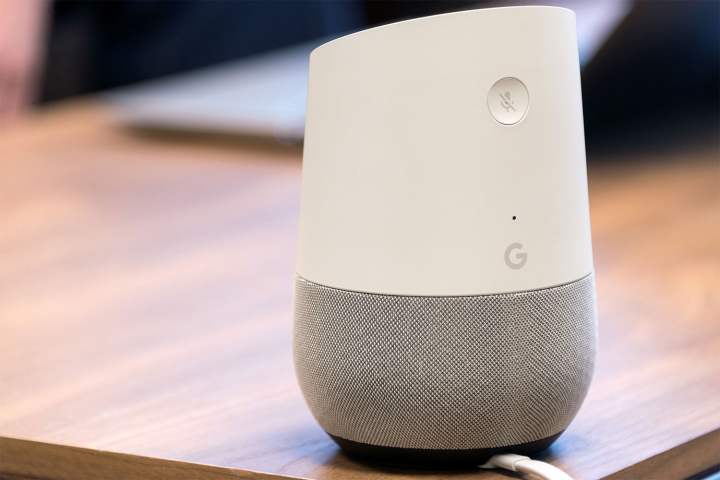
Google Home has been coming for Amazon Echo’s crown ever since it launched the competitive smart speaker in 2016, and now, it looks like we have a new reigning champ. As per a new report from Canalys, Google beat Amazon for the first time in smart speaker shipments, ultimately sending out 3.2 million Google Home and Google Mini devices in the first three months of 2018. Compare that to just 2.5 million Echo devices shipped by Amazon.
“Google has several advantages over Amazon that have helped it move ahead,” said Canalys Analyst Ben Stanton. “But its biggest advantage is in the channel. Operators and retailers tend to prioritize Google’s speakers over those from Amazon, as Amazon is in the tricky position of being a direct competitor. But Amazon is fighting back hard, and the sheer quantity of Alexa Skills and smart home integrations will be tough for any competitor to match.”
The impressive feat doesn’t come entirely as a surprise, as the tech giant has focused quite a bit this year on bolstering its smart speaker lineup and the built-in assistant, aptly named Google Assistant. For example, at CES 2018 in January, the A.I. helper was practically the talk of the town, as it was integrated into just about every product announced. And as Assistant’s capabilities have grown, so too has the appeal of the companion hardware.
That isn’t to say that interest in Amazon Echos are waning. These smart speakers have been around for significantly longer, as Amazon first debuted the Alexa-equipped device back in 2014. Indeed, the Echo lineup seems pretty ubiquitous in households across the United States these days — the Echo Dot, remember, was the top selling gift item on Amazon during Black Friday, and even throughout the holiday season.
Indeed, it would appear that interest in smart speakers across the world is growing at a rapid pace. As Canalys noted, “Smart speakers continue to be the world’s fastest-growing consumer technology segment, with year-on-year growth in the first quarter of 2018 of 210 percent as shipments reached nine million units.”
And it’s not just in the United States — in fact, the U.S. market share fell below 50 percent for the first time in the first quarter of 2018, likely because both Amazon and Google began targeting other markets, introducing new languages to their smart assistants, and offering their products in other countries. In total, 1.8 million smart speakers were sent to China in the first quarter, while South Korea became the third largest market in the world with 730,000 units shipped (previously, the U.K. took third place).
Outside of Google and Amazon, Alibaba is also a popular smart speaker maker. The Chinese tech giant shipped 1.1 million Tmall Genie speakers during this time period.

